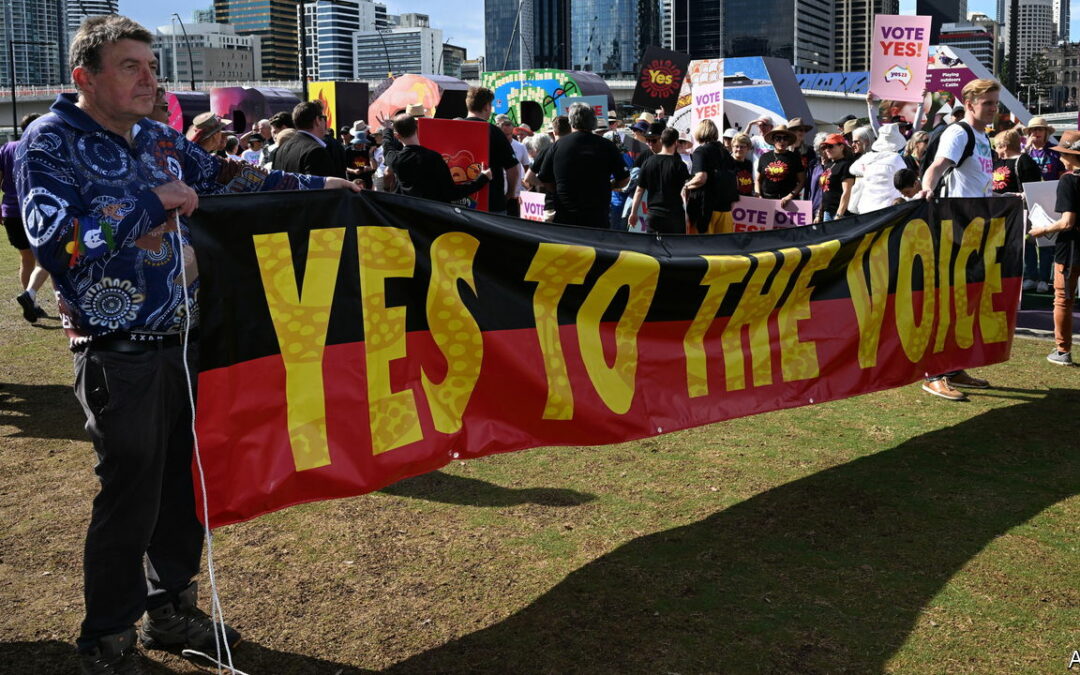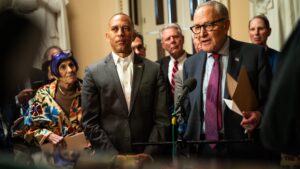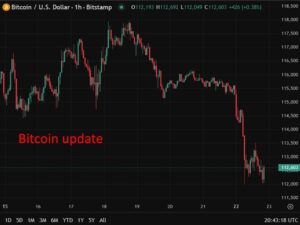“ACROSS THE finish line is a more unified, more reconciled Australia,” declared Australia’s prime minister, Anthony Albanese, in August as he set the date for a referendum on an indigenous “Voice to Parliament”. On October 14th 17.6m Australians will be asked to vote on a proposal to change their constitution and give a leg-up to their First People. What exactly are they voting on, and why?
The proposed “Voice” is an advisory group of indigenous representatives which the government would consult on issues affecting their communities. It aims to give Aboriginal people, who make up 3.8% of Australia’s population, more influence over policymaking, although politicians would not be bound to follow the Voice’s advice. Mr Albanese’s centre-left Labor government wants to enshrine the Voice in Australia’s constitution—so that future governments cannot abolish it. Should the vote pass, a new chapter in the constitution would also recognise Aboriginal people as Australia’s first inhabitants.
Aboriginal leaders have long fought for such recognition. Although they had inhabited Australia for some 65,000 years before Captain James Cook “took possession” of it in 1770, they had no say in drafting the nation’s founding document of 1901. Until a constitutional change after a referendum in 1967, they were even explicitly excluded from the census. At another referendum in 1999 John Howard, a conservative prime minister, proposed adding to the constitution a symbolic mention of “Aborigines…for their deep kinship with their lands”. But many found that tokenistic. Australians rejected the change.
The Voice would be more meaningful. Starting in 2016 a government-appointed “referendum council” held consultations with indigenous communities culminating, the following year, in a gathering of 250 elders at Uluru, the sacred monolith in central Australia. Their “Uluru Statement from the Heart” demanded “constitutional reforms to empower our people”. The statement asked first for a “First Nations Voice”, and then a process of treaty-making, to define the relationship between indigenous people and the government, and truth-telling, to teach all Australians their history. (Unlike in New Zealand, British colonists in Australia never struck an agreement with Aboriginal people when they arrived. New Zealand’s Treaty of Waitangi granted Britain sovereignty while acknowledging Maori landholdings and rights.) Upon being elected last year Mr Albanese hitched his political fortunes to the issue. He calls the Voice “a practical way of dealing with issues that…no Australian government has been able to get right.”
Australia has spent a fortune trying to improve Aboriginal well-being, with little success. On many measures, indigenous lives are hardly improving, or are getting worse. Rates of suicide and incarceration are rising. So are the numbers of children in care. On average indigenous Australians die eight years younger than the rest of the population, are twice as likely to kill themselves and are 12 times more likely to go to jail. Aboriginal leaders argue that is partly because policies, such as on health, education and housing, are foisted on them by distant politicians who do not understand their communities.
But the Voice does not appeal to everyone. Indigenous activists on the left argue that it does not go far enough and that Aboriginal people should first demand a treaty with the government. Conservative parties, meanwhile, view it as dangerous. Constitutional change would “permanently divide us by race”, claims Peter Dutton, the opposition leader. His centre-right Liberal Party says the proposal lacks detail over how the group would be elected or held accountable. It thinks the body would cause bureaucratic delays and legal dysfunction.
The No campaign sees risks ahead. The Voice would “open the door” for activists, its pamphlet claims. If treaties are pushed for, it warns, they might result in compensation for Aboriginals and “a rewriting of Australian history”. Or, activists could be emboldened to try to abolish Australia Day, which marks the arrival of the British, or change the flag and other institutions.
Such arguments are resonating. Polls find that a majority of Australians say they oppose changing their constitution. And a simple majority is anyway not enough: by law, a majority of voters nationwide, plus a majority in at least four of the six states are needed. Only eight of the 44 referendums held in Australia have passed—and all had bipartisan support. Without it, public support for the Voice is plunging. If Australians vote “No” in October, a referendum designed to heal old wounds might inflame them instead. ■









